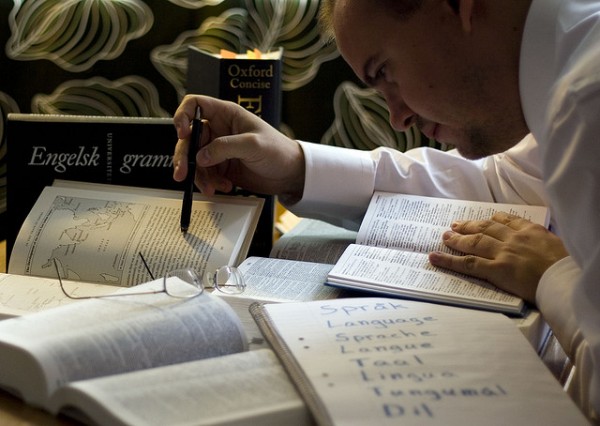
The scarcity of novels in African languages is not the only reason why we should be concerned about the future of African languages. What worries me more than anything is the absence of translations in these languages. Why isn’t there a Dinka translation of Plato’s Republic, a Yoruba translation of Madame Bovary, a Hausa translation of The Kama Sutra, or an Igbo translation of Half of a Yellow Sun?
Perhaps, the better question to ask is why should there be?
For languages to thrive and survive, they need to transform themselves. If folktales have taught us nothing, at least, they’ve shown us that the surest way to inspire transformation is by letting a stranger into the household. When you translate a text that is written in a language that is very different from your own, you force your language to take on the demands of the other. In the process, your language enriches itself with new words, new imageries, new styles, and syntactic forms.
This transformation is mutual. A Yoruba translation of Nietzsche’s Thus Spake Zarathustra will modify the Yoruba language as much as it will modify Nietzsche and the German language. Subjecting German to the rules of Yoruba results in Yoruba being forced to accommodate the quirks and strangeness of German. Translation is a space where languages grapple with each other, test their limits, and come out altered but stronger.
But then translation is an unequal exchange—one where the translating language takes way more than it gives to the original. When we translate The Ozidi Saga or Ogboju Ode ninu Igbo Irunmale (The Forest of a Thousand Daemons) into English, we are actually doing the English language a big favor. Yes, translation into English allows these texts to circulate globally, but it does very little for Ijo or Yoruba.
Imagine, on the other hand, compelling the Kikuyu language to think through Einstein’s relativity theory, Dickens’ curiosity shops, Woolf’s “luminous halo,” Holderlin’s Greece, Heidegger’s concept of time, Darwin’s apes, or even Conrad’s weird Africa.
Translation is essentially a way of poaching someone else’s languages for things that you might not have in yours so that your language can imagine things it wasn’t built to express.
It is the translator, as Walter Benjamin writes, who is saddled with the task of ” break[ing] through [the] decayed barriers of his own language.”
Image via Johan Klovsjö









James September 24, 2013 04:29
One Brazilain mas asked me if I think the Youruba language will survive into the next decade as all the Yoruba speakers in his native Brazil are dying off. Then I went to Lagos and I saw hundred and hundreds using the Youruba language in daily communication, and I said it will not die. So the forced human agenda is one thing, the deeper non- human agenda is another thing. Engish strives to kill of many religions all over the world and it has killed off some, so hacs Portugese and Spanish. But the nonhuman agenda is keeping it alive. Finnally when a yourba speker specks in English, he is saying and thinking in another context. People who have multi-language have a different brain that people who have only one language.